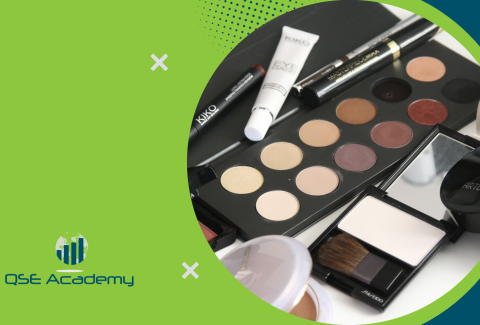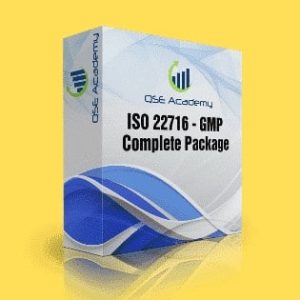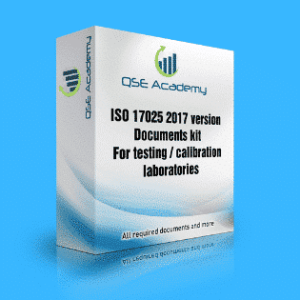Complete Guide to GMP Certification for Cosmetics
Complete Guide to GMP Certification for Cosmetics
Let’s talk about GMP certification for cosmetics—a term you’ve probably come across if you’re involved in manufacturing beauty products. But what does it really mean, and why is it such a big deal? Let me break it down for you.
The Basics of GMP (Good Manufacturing Practices)
GMP stands for Good Manufacturing Practices, which are essentially a set of rules and guidelines designed to make sure products are consistently high-quality and safe for consumers. When it comes to cosmetics, GMP is all about ensuring that the creams, lotions, and serums you create are free from contamination and produced under hygienic conditions. Think of it as a quality control checklist that covers everything from the cleanliness of your workspace to how your products are labeled.
Here’s a quick example: imagine a factory that makes moisturizers. If they’re not following GMP, they might store ingredients incorrectly or fail to test their final products for safety. The result? A product that could harm someone’s skin—not a good look for any brand.
By achieving GMP certification for cosmetics, you’re essentially proving to your customers (and regulatory bodies) that your manufacturing process meets the highest standards. It’s like a gold star for your business.
Why GMP Certification is Essential for Cosmetic Manufacturers
Now, let’s talk about why GMP certification for cosmetics is more than just a fancy title. First and foremost, it’s about safety. Cosmetics are applied directly to the skin, and no one wants to deal with irritation, allergic reactions, or worse because of poorly made products. Following GMP ensures that what you’re selling is safe for people to use.
But it’s not just about safety—it’s also about building trust. When your products carry the stamp of GMP certification, customers are more likely to believe in your brand. It shows you’ve gone the extra mile to meet strict standards, which can set you apart from competitors.
Lastly, if you’re looking to expand internationally, GMP certification is often a must. Many countries won’t allow imports of cosmetics that aren’t made in certified facilities. So, if you dream of seeing your products on shelves around the globe, GMP certification for cosmetics is your ticket.
Benefits of GMP Certification for Cosmetics
So, you’re wondering if GMP certification for cosmetics is worth the effort? Spoiler alert: it absolutely is. Let’s dive into the benefits and why this certification can be a game-changer for your cosmetic business.
Boosting Consumer Confidence
Think about it—would you rather buy skincare products from a brand that openly displays their GMP certification or one that doesn’t? Most people would choose the certified option without hesitation. Why? Because GMP certification for cosmetics tells customers that your products meet strict safety and quality standards.
When your customers know that your moisturizers, serums, and shampoos have been made in a clean, well-monitored environment, it builds trust. And trust isn’t just important—it’s everything when it comes to repeat business. With GMP certification, you’re not just selling cosmetics; you’re selling peace of mind.
Expanding Business Opportunities
Here’s the deal: if you’re dreaming of taking your cosmetic line global, GMP certification for cosmetics is often non-negotiable. Many countries require this certification before allowing your products to cross their borders. It’s like a passport for your business, opening doors to international markets you might not have access to otherwise.
Even within your home market, having GMP certification can set you apart from competitors. Retailers, distributors, and even e-commerce platforms are more likely to partner with brands that demonstrate a commitment to quality and compliance. It’s like giving your business an instant credibility boost.
Reducing Operational Risks
Let’s face it—manufacturing cosmetics is no small feat. Without proper systems in place, it’s easy for things to go wrong. Maybe an ingredient gets contaminated, or a batch doesn’t meet quality standards. These kinds of slip-ups can lead to costly recalls or, even worse, harm to your customers.
By following the guidelines of GMP certification for cosmetics, you’re putting systems in place to catch potential issues before they become big problems. It’s like having a safety net for your operations, ensuring that everything runs smoothly and consistently.
As you can see, GMP certification for cosmetics isn’t just about checking a box—it’s about creating a strong foundation for your brand’s success. Whether it’s winning over customers, growing your business, or avoiding costly mistakes, the benefits are undeniable.
Ready to learn how to get certified? Let’s move on to the next steps!
Steps to Achieve GMP Certification for Cosmetics
If you’re feeling ready to tackle GMP certification for cosmetics, you might be wondering, “Where do I even start?” Don’t worry—I’ve got you covered. While the process might seem a bit overwhelming at first, breaking it down into simple steps can make it much more manageable. Let’s take it one step at a time.
Step 1: Conduct a Gap Analysis
First things first, you need to know where you stand. A gap analysis is like a reality check for your current operations. You’ll compare what you’re doing now against the requirements for GMP certification for cosmetics. Are your processes organized? Are your facilities up to standard? This step will highlight any areas that need improvement.
Think of it like mapping out a road trip—you can’t get to your destination if you don’t know where you’re starting from.
Step 2: Develop Your Documentation
Documentation is a big part of GMP certification for cosmetics. This includes writing down all your procedures, from how you source raw materials to how you package finished products. Why is this so important? Because consistent processes lead to consistent results.
Start with your Standard Operating Procedures (SOPs). These are step-by-step guides for how things should be done in your production process. For example, how do you clean your equipment? How do you test your products? Write it all down, and make sure it’s easy for your team to follow.
Step 3: Train Your Team
You can have the best procedures in the world, but if your team doesn’t follow them, it’s all for nothing. That’s why training is a crucial part of GMP certification for cosmetics. Everyone in your organization, from production workers to quality control staff, needs to understand the rules and their role in maintaining compliance.
Make training sessions interactive and hands-on so that your team not only learns but also feels confident in applying what they’ve learned.
Step 4: Upgrade Your Facilities and Equipment
Cleanliness and organization are non-negotiable for GMP certification for cosmetics. Take a close look at your facilities—are they designed to prevent contamination? Do you have the right equipment to monitor quality at every stage? If not, it might be time to invest in some upgrades.
Don’t worry; you don’t have to build a state-of-the-art factory overnight. Start by addressing the most critical areas and work your way up.
Step 5: Perform Internal Audits
Before you invite an external certification body to audit your operations, it’s a good idea to do your own internal audit. This is like a dress rehearsal for the real thing. Go through every aspect of your production process and double-check that it aligns with GMP requirements.
Internal audits aren’t just about finding flaws—they’re about fixing them before anyone else spots them.
Step 6: Undergo the Certification Audit
This is the big moment! Once you’ve addressed all the gaps, documented your processes, trained your team, and conducted internal audits, it’s time to invite a certification body to evaluate your operations. They’ll review everything to ensure you meet the standards for GMP certification for cosmetics.
Don’t panic if they find a few issues—most certification bodies give you a chance to make corrections and try again.
And there you have it! Following these steps can help you achieve GMP certification for cosmetics and take your business to the next level. The journey might take some time and effort, but the rewards—greater trust, better opportunities, and smoother operations—are more than worth it. Ready to get started? Let’s tackle those challenges head-on!
Key Challenges in GMP Certification for Cosmetics
Alright, let’s be honest—getting GMP certification for cosmetics isn’t a walk in the park. It’s a process that requires effort, attention to detail, and plenty of patience. But don’t worry! Knowing the common challenges ahead of time can help you tackle them like a pro. Let’s break them down together.
Documentation Overload
One of the first hurdles you might face is the sheer amount of paperwork. For GMP certification for cosmetics, every step of your production process needs to be documented. From sourcing raw materials to packaging the final product, it all has to be written down in a way that’s clear and easy to follow.
It can feel overwhelming, but think of it as creating a playbook for your business. Once it’s done, it becomes your guide for consistency and compliance. Plus, if your team knows exactly what to do and how to do it, things will run a lot more smoothly.
Pro Tip: Start small. Focus on the most critical procedures first, then build out your documentation over time.
Meeting Hygiene Standards
Cleanliness is king when it comes to GMP certification for cosmetics. Your facilities and equipment need to meet strict hygiene standards to avoid contamination. This can be a challenge, especially if your current setup isn’t quite up to par.
Here’s a relatable example: imagine cooking dinner in a messy kitchen. It’s much harder to keep things clean and organized, right? The same goes for your production space. A cluttered, unorganized environment makes it easier for mistakes to happen.
To tackle this challenge, invest in proper cleaning protocols, train your staff on hygiene best practices, and make cleanliness a non-negotiable part of your daily operations.
Ensuring Continuous Compliance
Getting GMP certification for cosmetics is one thing—keeping it is another. Compliance isn’t a one-time thing; it’s an ongoing commitment. Regulations can change, team members might forget procedures, and processes can drift off course over time.
The key here is to create a culture of continuous improvement. Regular training sessions, internal audits, and updates to your procedures will help you stay on track. Remember, maintaining compliance is just as important as achieving it.
Pro Tip: Set a schedule for routine reviews and stick to it. This helps you catch and fix small issues before they turn into big problems.
Sure, these challenges can seem daunting, but they’re all manageable with the right approach. The path to GMP certification for cosmetics might have a few bumps, but with some preparation and persistence, you’ll come out on top—and your business will be stronger for it. Ready to tackle the next step? Let’s keep going!
Tips for Maintaining GMP Certification for Cosmetics
Getting GMP certification for cosmetics is an achievement worth celebrating—but the real work begins once you’re certified. Maintaining your certification requires ongoing effort and a proactive approach to keep your processes compliant and your business running smoothly. Don’t worry, though—I’ve got some simple tips to help you stay on track!
Regular Training for Employees
Your team is the backbone of your operations, so keeping them informed and up-to-date is essential. GMP standards aren’t static—they evolve over time. Regular training sessions ensure that everyone understands the latest requirements and knows how to implement them in their daily tasks.
Think of it this way: if you’re playing a team sport, everyone needs to know the rules to work together effectively. It’s the same with GMP certification for cosmetics—a well-trained team makes all the difference.
Tip: Make training interactive and include real-life scenarios to keep it engaging. Employees are more likely to retain information when they can see how it applies to their work.
Conduct Routine Audits
Audits might not sound like the most exciting thing, but they’re one of the best ways to maintain GMP certification for cosmetics. Regular self-assessments help you identify any weak spots in your processes before they become major issues. Plus, being proactive about compliance shows your commitment to quality and safety.
Think of audits like a regular health check-up for your business. By catching small problems early, you can avoid bigger headaches down the road.
Tip: Schedule audits quarterly or biannually, depending on your production volume and complexity. Make them a standard part of your routine.
Keep Your Documentation Up to Date
Remember all that paperwork you created to get certified? It’s not a “set it and forget it” situation. Regulations can change, and so can your processes. Keeping your documentation current ensures that your operations always align with GMP standards.
For example, if you introduce a new product or tweak your production process, your Standard Operating Procedures (SOPs) need to reflect those changes. Staying on top of updates will save you from scrambling during external audits.
Tip: Assign someone on your team to review and update documents regularly—it could be monthly or after any major changes in your workflow.
Create a Culture of Quality
Ultimately, maintaining GMP certification for cosmetics isn’t just about checking boxes; it’s about embedding quality into your company culture. When everyone on your team—from the factory floor to the management office—takes pride in producing safe, high-quality products, compliance becomes second nature.
Celebrate successes, encourage open communication, and make quality a shared responsibility. When your entire team is invested, staying compliant becomes much easier—and even enjoyable.
Maintaining GMP certification for cosmetics might feel like a continuous effort, but the rewards are well worth it. By staying consistent with training, audits, and documentation, you’ll not only keep your certification but also build a stronger, more resilient business. You’ve got this—keep up the great work!
How to Choose a Certification Body for GMP Certification for Cosmetics
So, you’re ready to pursue GMP certification for cosmetics, but now comes an important decision: which certification body should you choose? This is a big step, and picking the right partner can make the process smoother and less stressful. Let’s break it down together so you can make an informed choice.
Look for Accreditation and Credibility
Not all certification bodies are created equal. The first thing you’ll want to check is whether the body you’re considering is accredited by a recognized authority. Accreditation ensures that the certifying organization follows international standards and is qualified to assess your business.
Think of it like hiring a tutor—you’d want someone who’s not only experienced but also recognized in their field, right? The same applies here. A reputable certification body adds credibility to your GMP certification for cosmetics.
Tip: Research reviews and testimonials from other cosmetic companies who’ve worked with them. Their experiences can give you valuable insights.
Choose a Body with Industry Expertise
Let’s say you’re running a skincare brand. Wouldn’t it make sense to work with a certification body that understands the cosmetics industry inside and out? Look for organizations with experience specifically in GMP certification for cosmetics. They’ll be familiar with the unique challenges and regulations of your industry, making the process more tailored and efficient.
For example, a body that has certified other cosmetic companies will know exactly what to look for when auditing your facilities and processes. This expertise can save you time and help you avoid unnecessary back-and-forth.
Balance Cost and Support
Certification is an investment, and costs can vary depending on the certification body you choose. While it’s tempting to go for the cheapest option, keep in mind that value matters more than price. A slightly higher fee might come with better support, faster responses, and a smoother overall experience.
Some certification bodies offer extra perks, like guidance on preparing for audits or templates to help with documentation. These little things can make a big difference when you’re pursuing GMP certification for cosmetics.
Tip: Ask for a detailed breakdown of costs upfront and compare what’s included in the price. Transparency is key!
Consider Location and Accessibility
If the certification body has offices or representatives in your region, it can be a huge plus. Local presence often means quicker response times and a better understanding of regional regulations for GMP certification for cosmetics.
Additionally, think about language barriers. If the certification body doesn’t speak your language, communication might become an obstacle. Make sure you’re choosing a partner who’s easy to work with and can offer support when you need it.
Check Their Approach to Client Support
Getting GMP certification for cosmetics can feel like a long journey, so it’s important to have a supportive partner. Does the certification body respond to emails promptly? Are they approachable when you have questions? These small details can make the process less stressful and more collaborative.
Tip: During your initial conversations with potential certification bodies, pay attention to their communication style. If they’re patient and helpful from the start, it’s a good sign.
At the end of the day, choosing the right certification body for GMP certification for cosmetics is about finding a partner who aligns with your needs and values. Take your time to research, ask questions, and compare options. Remember, this decision sets the tone for your certification journey—so make it count!
FAQs About GMP Certification for Cosmetics
If you’re new to the process of GMP certification for cosmetics, you probably have a ton of questions swirling in your mind. Don’t worry—you’re not alone! Let’s tackle some of the most frequently asked questions about GMP certification so you can move forward with confidence.
How long does it take to get GMP certification for cosmetics?
Great question! The timeline for GMP certification for cosmetics can vary depending on the size of your business, the complexity of your operations, and how prepared you are. On average, it can take anywhere from a few months to a year.
If your processes and documentation are already in good shape, you’ll likely move through the steps more quickly. However, if you’re starting from scratch, expect to spend more time getting everything in order. Remember, it’s not a race—it’s about doing things right.
How much does GMP certification for cosmetics cost?
The cost of GMP certification for cosmetics depends on several factors, like the size of your operation, the certification body you choose, and the scope of the audit. For small to medium-sized cosmetic businesses, costs typically range from a few thousand dollars to tens of thousands.
While this might seem like a hefty investment, think of it as a stepping stone to greater opportunities. Certification not only ensures compliance but also boosts your credibility, helping you attract more customers and partners in the long run.
Do I need GMP certification for a small cosmetic business?
Absolutely! Whether you’re a small startup or an established company, GMP certification for cosmetics is crucial. For one, it demonstrates your commitment to quality and safety—two things every customer values. It also helps you stand out in a competitive market and opens doors to selling your products in more regions, including those with strict regulatory requirements.
Plus, starting with GMP certification early in your journey sets a strong foundation for growth. It’s easier to scale when your processes are already standardized and compliant.
What happens if I fail the GMP audit?
First off, don’t panic! Failing the initial audit for GMP certification for cosmetics isn’t uncommon, especially if it’s your first time. Certification bodies typically provide a detailed report outlining areas where you fell short. This gives you a clear roadmap for making improvements.
You’ll have the opportunity to address those gaps and schedule a follow-up audit. Think of it as a chance to refine your processes and come back stronger.
Can I sell my products without GMP certification?
Technically, it depends on your target market. Some regions don’t require GMP certification for cosmetics, but here’s the catch: even if it’s not mandatory, customers and retailers often prefer certified products. GMP certification signals that your brand prioritizes safety, quality, and compliance—all things that build trust.
If you’re aiming to grow and compete on an international level, GMP certification is a must-have.
Is GMP certification for cosmetics a one-time process?
Not at all! Achieving GMP certification for cosmetics is just the beginning. To maintain your certification, you’ll need to stay compliant with GMP standards through regular audits, updated documentation, and ongoing training.
The good news? Staying certified gets easier over time as your team becomes more familiar with the processes. It’s all about building a culture of quality and consistency.
Hopefully, these answers cleared up some of your questions about GMP certification for cosmetics! If you’re still unsure about something, don’t hesitate to reach out or dive into the next section for more tips and insights. You’ve got this!
Conclusion: Why GMP Certification for Cosmetics is a Game-Changer
We’ve covered a lot, haven’t we? By now, you probably have a pretty good sense of what GMP certification for cosmetics is all about and why it’s such a valuable investment for your business. Let’s take a moment to wrap everything up.
A Commitment to Quality and Safety
At its core, GMP certification for cosmetics is about one thing: ensuring the products you create are safe, high-quality, and consistent. Whether you’re making face creams, shampoos, or lip balms, customers rely on you to deliver products they can trust. Certification is your way of proving that you take this responsibility seriously.
Think of it as your brand’s promise to consumers—a guarantee that what you’re offering meets the highest standards of excellence.
Unlocking New Opportunities
Let’s not forget the business perks! Achieving GMP certification for cosmetics opens doors to new markets, partnerships, and customers. It’s a golden ticket to compete on an international level, especially in regions where certification is a requirement for entry.
Plus, the trust and credibility that come with certification can set you apart from competitors. In a crowded market, that extra edge can make all the difference.
Building a Stronger Business
Beyond the certification itself, the process of getting there helps you refine your operations. By improving your documentation, training your team, and upgrading your facilities, you’re creating a well-oiled machine that’s built for long-term success.
And let’s be honest: running a business can be stressful. Knowing that your processes meet GMP certification for cosmetics standards can give you peace of mind and help you sleep a little easier at night.
Ready to Take the Next Step?
If you’re thinking about pursuing GMP certification for cosmetics, now’s the perfect time to start. It might feel like a big undertaking, but with the right approach (and maybe a little patience), it’s absolutely achievable. Plus, the rewards—greater trust, new opportunities, and a stronger brand—are well worth the effort.
So, what are you waiting for? Take that first step toward GMP certification for cosmetics, and watch your business grow in ways you never imagined. You’ve got this! 🚀
If there’s anything else you’d like to know, don’t hesitate to ask. I’m here to help you every step of the way. Let’s make your certification journey as smooth and successful as possible!
Melissa Lavaro is a seasoned ISO consultant and an enthusiastic advocate for quality management standards. With a rich experience in conducting audits and providing consultancy services, Melissa specializes in helping organizations implement and adapt to ISO standards. Her passion for quality management is evident in her hands-on approach and deep understanding of the regulatory frameworks. Melissa’s expertise and energetic commitment make her a sought-after consultant, dedicated to elevating organizational compliance and performance through practical, insightful guidance.
Related Posts
Search
Popular posts
Subscribe on YouTube
Popular tags













